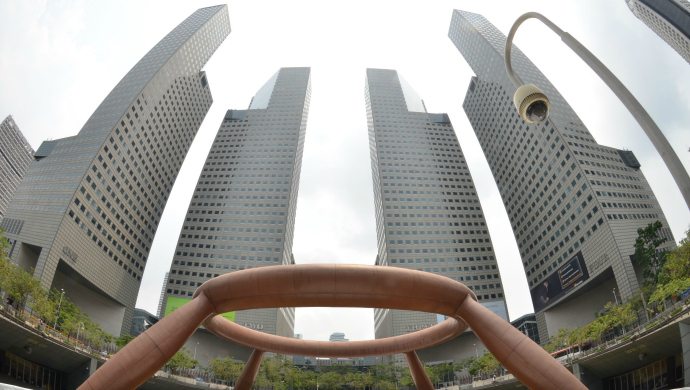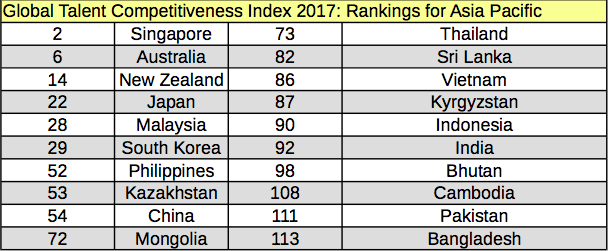The annual INSEAD Global Talent Competitiveness Index (GTCI) report focusses on how each country grow, attract and retain talent
Singapore is the second best market globally to attract, grow and retain talent, according to a report by INSEAD. Switzerland took the top spot, the UK took third place, while the US was placed at number 4.
INSEAD’s annual Global Talent Competitiveness Index (GTCI) report is produced in partnership with The Adecco Group and the Human Capital Leadership Institute of Singapore (HCLI). The theme of this year’s report was “Talent and Technology: Shaping the Future of Work.”
Essentially, the report argued that while tech advancements will continue to disrupt the workplace and displace jobs, new opportunities will also be created.
“People, machines, and algorithms are combining to create an unfolding future for work where new skills will need to be provided and acquired. While routine, repetitive, and dangerous tasks continue to move from people to machines and robots, individuals, organisations, and our educational systems will need to adapt to a work environment in which career changes will be part of a typical working life,” said the report.
The top ranking countries share similar traits, including “educational systems that meet the needs of the economy, employment policies that favour flexibility, mobility and entrepreneurship, and high connectedness of stakeholders in business and government.”
In this regard, the report stated that Singapore is a top performer in enabling and attracting talent. It praised the country’s digital vision and strategy, flexible labour market, strong city-state ecosystem and a forward-thinking education system that was able to adapt to market and economic needs.
“Talent attraction, development, and retention, along with enabling, are not just issues of concern to the ministries of labour or education…they are the focus of all ministries, within the scope of an all-embracing Smart Nation strategy,” said the report on the Singapore government’s united stand of talent development.
But it also said the city-state can improve in helping employees access growth opportunities and producing more innovation. Singapore’s tolerance of immigrants also scored relatively poorer.
Also Read: New hospital in Singapore to use AI, smartbands and robotics to improve patient care
Singapore’s neighbour Malaysia, was ranked 28th on the index. The country scored well in enabling talents and growing vocational and technical skills, but it scored lower with regards to “tolerance of minorities”. However, it is still able to attract foreign talent due to conducive management and growth opportunities.
Down south, the Singapore’s bigger — and more fragmented — neighbour Indonesia was ranked 90th on the index. The report stated that while Indonesia needs to improve in all areas, many business leaders are already attracted to the country’s potential for highly-skilled talent. National work-based learning systems are already being set up in Indonesia.
But the report also cautioned against ‘premature industrialisation’ in the developing nation and urged the country to invest in upskilling its workforce and rethink its growth models first.
“Technology has a profound impact on the nature and structure of work. In this digital era where work is constantly evolving, a premium is placed not on employees who possess the highest level of technical competencies, but on those who have the ability to learn and re-learn on the job. Many employees will find themselves facing technological and structural unemployment if they do not re-invent themselves ,” said Su-Yen Wong, CEO of Human Capital Leadership Institute, in an official press release.
—
Want to be part of the ecosystem?
Register for your Echelon Asia Summit access pass now! Enjoy +10% off Echelon Asia Summit Startup, Investor and Corporate passes just for being our favourite e27 reader:
The post Singapore ranks second globally for talent competitiveness: INSEAD report appeared first on e27.

